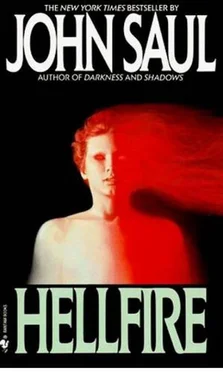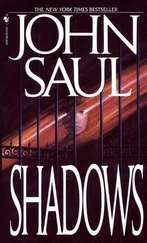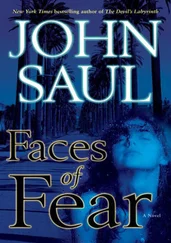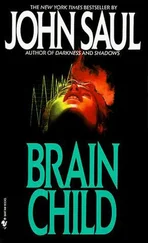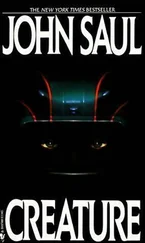With the remnants of her mind, Tracy tried to remember the name of the other child, but it was gone. But it didn’t matter, because she knew she’d killed her, and that was all that was important.
Her grandmother.
Her grandmother would save her. It didn’t matter what she’d done, because her grandmother was always there.
But not this time. This time, there was nobody.
She was alone, and the heat was closing in on her, and she could feel her skin searing, and smell her singeing hair.
She writhed on the floor, trying to escape the death that was coming ever closer, but there was nowhere to go — nowhere to hide.
The whole room was glowing around her now, and she was afraid, deep in her heart, that she had already died, and would be confined forever to the fires around her — the fires of hell.
Once again she called out to her father, begging him to save her.
But she died as Amy had died, knowing there would be no salvation.
Her soul, like Amy’s, would be trapped forever, locked away in the burning inferno.…
By the time Phillip reached the mill, it was already clear that the building was doomed. Three fire trucks were lined up along the north wall, and two more stood in the middle of Prospect Street, their hoses snaking across the sidewalk and up the steps to the shattered remains of the plate-glass doors. But the water that poured from the hoses into the building seemed to evaporate as fast as it was pumped in.
The roar of the blaze was deafening, and when Phillip found Norm Adcock, he had to put his mouth to the police chief’s ear in order to be heard at all.
“It’s no good,” he shouted. “There’s no way to stop it.”
Adcock nodded grimly. “If they can’t get it under control in ten minutes, they’re going to give up on the building and just try to keep the fire from spreading.”
But they didn’t have to wait ten minutes.
The main floor had burned through now, and the fire was raging through the new construction. The heat and flames rose upward, and suddenly, as Phillip watched, the great dome over the atrium seemed to wobble for a moment, then collapse into the firestorm below. The gaping hole in the roof combined with the shattered front doors to turn the entire structure into a vast chimney. Fresh air rushed into the vacuum, and the blaze redoubled, lighting the sky over the town with the red glow of hell. Over the roar of the inferno, the wailing of sirens sounded a melancholy counterpoint, a strange dirge accompanying the pageant of death the mill had become.
“The girls,” Phillip shouted, straining to make himself heard over the deafening crescendo.
Again Adcock shook his head. “By the time I got here, there was no way to get inside. And if they were in there …” There was no need to finish the sentence.
The firemen had given up on the building now, and the hoses were turned away, pouring water onto the ground around the mill. And yet there was really little need for this. Always, the mill had stood alone between the railroad tracks and Prospect Street, the land on either side of it vacant, as if no other building wished to be associated with the foreboding structure that had for so long been a brooding sentinel, guarding the past.
Prospect Street itself was filling now as the people of Westover, hastily dressed, began to gather to witness the last dying gasps of the mill.
They stood silently for the most part, simply watching it burn. Now and then, as a window exploded from the pressure of the heat within, a ripple of sound would roll through the crowd, then disappear, to be replaced once more by eerie silence.
It was a little after two in the morning when the brick walls that had stood solid for well over a hundred years finally buckled under the fury of the fire and the weight of the roof, trembled for a moment, then collapsed.
The entire building seemed to fall in on itself, and almost immediately disappeared into the flames.
All that was left now was a vast expanse of flaming rubble, and once more the fire fighters turned their hoses toward the blaze. Clouds of steam mixed with smoke, and the roar of the inferno suddenly dissolved into a furious reptilian hissing, a dragon in the final throes of death.
Now, at last, the crowd came to life. It stirred, murmuring softly to itself, drifting closer to the dying monster.
It eddied around Phillip Sturgess as if he were a rock dividing a current. He stood alone as the mass of humanity split, passed him by, then merged once more to flood into the street.
And then, finally, he was alone, standing silently in the night, facing the ruin that had once been the cornerstone of his family’s entire life.
Carolyn stood on the terrace with Hannah, watching the flames slowly die back until all that was left was an angry glow. She could see the black silhouettes of people, looking from Hilltop like no more than tiny ants swarming around the remains of a ruined nest.
It should have happened a hundred years ago .
The thought came unbidden into her mind, where it lodged firmly, until she finally spoke it out loud. For a moment Hannah remained silent; then she nodded abruptly.
“I expect you’re right,” the old woman said softly. Then she took Carolyn’s arm in her gnarled hand, and pulled her gently toward the house. “I won’t have you standing out here in the night air, not when there’s nothing you can see, and nothing you can do.”
“I have to do something,” Carolyn objected, but nevertheless let herself be guided inside. She followed Hannah into the living room, then sank into an overstuffed chair.
“You just stay there,” Hannah said gently. “I’ll put some tea on so it will be ready for Mr. Phillip when he comes back.”
Carolyn nodded, though the words barely penetrated her mind.
Slowly, she relived the short time since Phillip had left the house.
She’d followed him downstairs, the strange book she’d found in Beth’s room still clutched in her hand. Only when he was gone had she taken it into the living room, and read it through carefully.
Just as she had finished, Hannah had appeared, to tell her the mill was burning.
Even before she’d gone out on the terrace to look, she’d come to the certain realization that both Beth and Tracy were dead. And in the numbness following the first overwhelming wave of grief for her daughter, she’d also come to understand that there was a certain unity in what had happened.
It was as if the tragedy that had occurred in the mill a century ago — a tragedy that had never been fully resolved — was finally seeking its own resolution, and exacting a terrible revenge on the descendants of those who had for so long avoided their responsibilities.
Except for Beth.
For the rest of her life, she knew, she would wonder why Beth had had to die that night.
Now she sat alone in the living room, waiting for Phillip to come home, trying to compose her thoughts, preparing herself to explain to her husband what had happened in the mill so many years ago.
At last, just before three, she heard the sound of his car pulling up in front of the house. A moment later the front door opened and closed, and she heard Phillip calling her. His voice sounded worn out, defeated.
“In here,” she said quietly, and when he turned to her she could see the anguish in his eyes.
“The girls—” he began. “Tracy — Beth—”
“I know,” Carolyn said. She rose from her chair, and stepped out of the dim pool of light from the single lamp she had allowed Hannah to turn on. She went to her husband, and put her arms around him, holding him tight for a moment. Then she released her grip, and drew him gently into the living room. “I know what happened,” she said softly. “I don’t understand it all, and I don’t think I ever will, but I know the girls are gone. And I almost know why.”
Читать дальше
